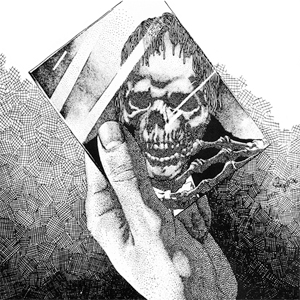Oneohtrix Point Never Replica
In a recent interview with Altered Zones co-editor Emilie Friedlander, Brooklyn-based musician Daniel Lopatin elaborated […]

In a recent interview with Altered Zones co-editor Emilie Friedlander, Brooklyn-based musician Daniel Lopatin elaborated on the mindset he was in when selecting the source materials for his latest LP as Oneohtrix Point Never, saying, “[It reveals] that we’re not in a perfect system though we want to be. We want to believe that we’re efficient and perfect, but things are totally out of control and chaotic, like the way we speak and the way we think.” He’s referring to the audio recordings of decades-old commercials that he hacked into fragmented gulps, hiccups, exhalations, and various sonic ephemera to weave into his usual glacial drifts of Juno 60 synth tones. These kinds of dismantled phrases do help illuminate elements of the underbelly of collective consciousness, in a sense, but they do something even more important and direct, too. When warped and sequenced into disjointed juxtapositions, they make up a large portion of Oneohtrix Point Never’s newest asset and Replica‘s strongest element: rhythm.
“Andro” opens Lopatin’s new record with a mix of his past and present sounds, as if the artist is descending from the stars on a nebula of synthesized melodies, ultimately touching down on the terra firma of jumbled percussion, looped instrumentation, and half-utterances. That’s not to say he never ascends into the clouds again—both “Power of Persuasion” and “Remember,” among others, feature healthy offerings of formless analog warmth—but Replica is, for the most part, Oneohtrix’s most physical record yet.
The gritty, animalistic qualities of compositions like the surreal “Sleep Dealer,” the frantic “Nassau,” and the claustrophobic “Child Soldier” are the backbone around which Oneohtrix wraps his sparse melodies and disparate sound bytes. While blips of, say, a piano passage fold into drum-beat fractions and mid-syllables to flesh out an unnatural-but-oddly human groove, the core is adorned with maybe a lush string sample, a synth preset lilting in the background, and an audio clip of a pack of braying hounds. It creates the effect of simultaneously listening to any number of radio stations—all from distant eras and locales, none of which transmit their broadcast as a whole without interruptions. The music is at once disorienting, entrancing, confounding, and uniquely beautiful—all qualities that could accurately describe the entirety of Replica.
During his LP’s title track, Lopatin unlocks the perfect balance between his subconscious galactic travels and his earthly ruminations. The song brings to mind Antony Hegarty’s version of the “Returnal” single from Oneohtrix Point Never’s 2010 album of the same name, as it relies heavily on repeating piano melodies that brood with discontent and desire. But instead of Hegarty’s inimitable voice coloring in the edges of the piece, it is doused with washes of humming static, low-end rumble, and floating Juno 60 themes. The combination seems basic enough, but Lopatin uses those subtle intricacies and atonal nuances to further prove his original point. Even while he attempts to deliver a lovely and simple piano suite, a miasma of errant and tumultuous noise does its best to derail his efforts at sublimity. And yet despite its seemingly uncontrolled nature, “Replica” is an arresting piece deliberately written by a gifted musician. That ability to present such harnessed disarray through fresh and exciting music makes Replica a compelling listen from start to finish and a brilliant new direction for Oneohtrix Point Never’s sound.

